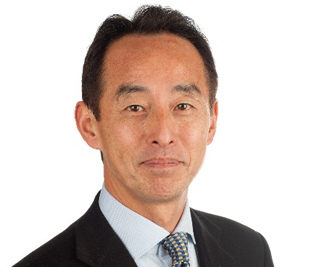Silicon Valley veteran Young Sohn is in charge of ensuring an even bigger future for the world’s leading digital device maker by building an ecosystem to rival Apple’s.
Sohn was named Samsung’s chief strategy officer and given president-level clout in August just before the Korean tech giant set out to establish a bigger Silicon Valley footprint and challenge its Cupertino-based smartphone rival in its own backyard.
Sohn will be based out of the 8.5-acre Mountain View R&D campus Samsung began building in September to house 2,000 employees. Another component of Sohn’s domain is the startup accelerator launched in November and the global media group headed by executive VP David Eun who is also based in Palo Alto.
Sohn’s quarter-century Silicon Valley career has included founding Intel’s PC chipset business and heading up the chipmaker’s joint venture with Samsung in the 1980s before leading a series of successful semiconductor and storage companies. That experience gives the Korean American Sohn a good perspective from which to identify the innovations and trends that can open up new market opportunities for Samsung in the digital universe. He will be working with Samsung’s chief technology officer in Korea as well as the new M&A office in the US.
“This is an important priority, which is why Samsung decided to assign a president-level role to lead this effort outside of Korea,” Sohn told Technology Review. “Titles are a big deal in Korean companies, so it’s unique to have someone at this level based here.”
As Samsung nears its 75th birthday it has become the world’s biggest IT company. But to continue growing, Sohn says, it needs a bigger and better-connected innovation engine.
“You need to have the right people. You cannot just optimize talent in Korea—you have to optimize talent overseas, and being close to critical innovation centers like Silicon Valley is important to us.
“We’re saying, look, the center of innovation is here, and we want to make our organization twist around the other way. We’re going to be much closer to Silicon Valley, and places like Austin, Boston, Israel, and Russia and other talent centers around the world.”
Sohn, a longtime user of Apple products, sees the move into Silicon Valley as going beyond an effort to invade Apple’s turf.
“There are 6,000 startups here. When you look at where venture capital dollars are spent, more than half are spent right here, globally. That’s what makes this area really interesting for us.”
As the world’s biggest device company, Samsung has potentially the most pervasive platform on which to build an ecosystem. Sohn sees his job as making sure the company makes full use of that platform with a compelling ecosystem.
“If you look at the strengths of Apple, it’s not the product per se,” says Sohn. “It’s that consumers like their ecosystem such as iCloud. I like that my family 6,000 miles away in Korea is able to see my schedule and see all of my contacts and photos. It is sticky, but it is a proprietary architecture.
“We actually provide more devices that are interacting with consumers than anyone in the world. But it’s not experienced in a connected way. So we think we can provide a lot more things than what we are doing today with an open ecosystem with our partners.”
He sees the major areas of growth in cloud technologies, big-data technologies, mobile-ecosystem technologies, and enterprise infrastructure — areas in which Apple currently enjoys a big lead.
Samsung’s perpetual quest to move into new business areas is essential not only to growth, but to survival, says Sohn.
“You are only as good as your latest product, and so we’ll continue the push for innovation and talent that can put us in a new place.”
Samsung’s recent announcement of its intention to enter the health-care business is the example Sohn cites of the perpetual race to identify and move into the next big business opportunity.
“You will see us investing there and trying to figure out how to support better living though better health. There’s an aging population that requires better care, and that’s a big market.”


